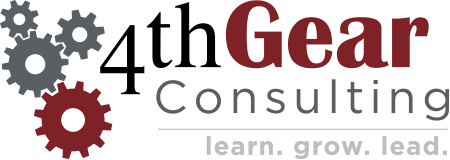The word accountability seems to be getting more and more attention lately in the business world, and probably the world in general. There seems to be an ongoing conversation about holding people accountable. That’s likely a good trend, but not unless we somehow work harder to clearly define what accountability really means and how to create more of it in our businesses, and our world.
When I hear people use the phrase “hold someone accountable” often what they mean is punishing someone for not doing their job well. They are using the term “accountable” to represent the consequences for what they failed to do, or what they did incorrectly. If we only think of accountability as what we do after someone screws up, we will never actually establish an accountable culture. Instead, we will build a fearful culture where people are scared to take risks, make mistakes, and try new things because of the “accountability” that is actually “punishment.”
The first step to making any change in business (including creating a more accountable culture) is to define exactly what the change means in terms of actual behavior. For example, are we all responsible for taking appropriate risks to grow and improve our business? If we are and we focus on punishment for mistakes, we are clearly going to confuse people. And confused people stand still. We need to create a clear picture of what accountability means and for what things we should all be accountable.
An Accountability Model
At 4th Gear, we created a model to help businesses frame their thoughts around accountability in their organization that focuses on four key opposing concepts:
· Future vs. Past
· Solution vs. Problem
· Ownership vs. Blame
· Proactive vs. Reactive
People who spend their time thinking about the future, focusing on solutions, taking ownership, and being proactive are considered highly accountable. Individuals who dwell on the past, always articulate problems, blame others, and are highly reactive, are considered victims and will never help an organization succeed as long as they choose to have a victim mentality. Once we define accountability with these four concepts, it’s much easier to assess talent based on it, coach to create it, and organize to support it.
If everyone in our business is on the same page with the definition of accountability, we stand a much greater chance of people being able to evaluate actions and habits based on that description, rather than everyone interpreting “accountability” based on their beliefs or historical perspectives about what it means. We as leaders can then support people moving in the direction of accountability and have meaningful, explicit conversations with those who are struggling to get there. Imagine walking out of your boss’s office after she simply told you that you needed to be more accountable instead of defining what accountability means and providing examples of how you can be more proactive, solution-oriented, future focused, and take more ownership? Which conversation is more likely to cause a shift in your performance by creating clarity and insight?
Leaders drive accountability in organizations by how it is defined and how they coach and communicate with others based on that definition. They also support the interpretation by becoming more accountable themselves and creating an example. It’s easy to think that we are “fully accountable leaders” and yet still catch ourselves blaming others, dwelling in the past too often, focusing on problems more than solutions, or being reactive. Once we have a clearer way to measure our leadership against an accountability model, we become much better at finding opportunities for improvement and making progress as leaders.
Make no mistake, the actions of leaders will create the culture in any business. Fortunately, we get to choose whether we define and build a culture that causes success in our business or simply live with the one we allow to evolve. Sometimes we create the culture we never intended to while striving for greater accountability, but our actions screamed that we preferred punishment instead.
Leading Through Influence
We develop better leaders so they can build a better future. Contact Us to learn about leader development via our training, workshops and executive coaching.


